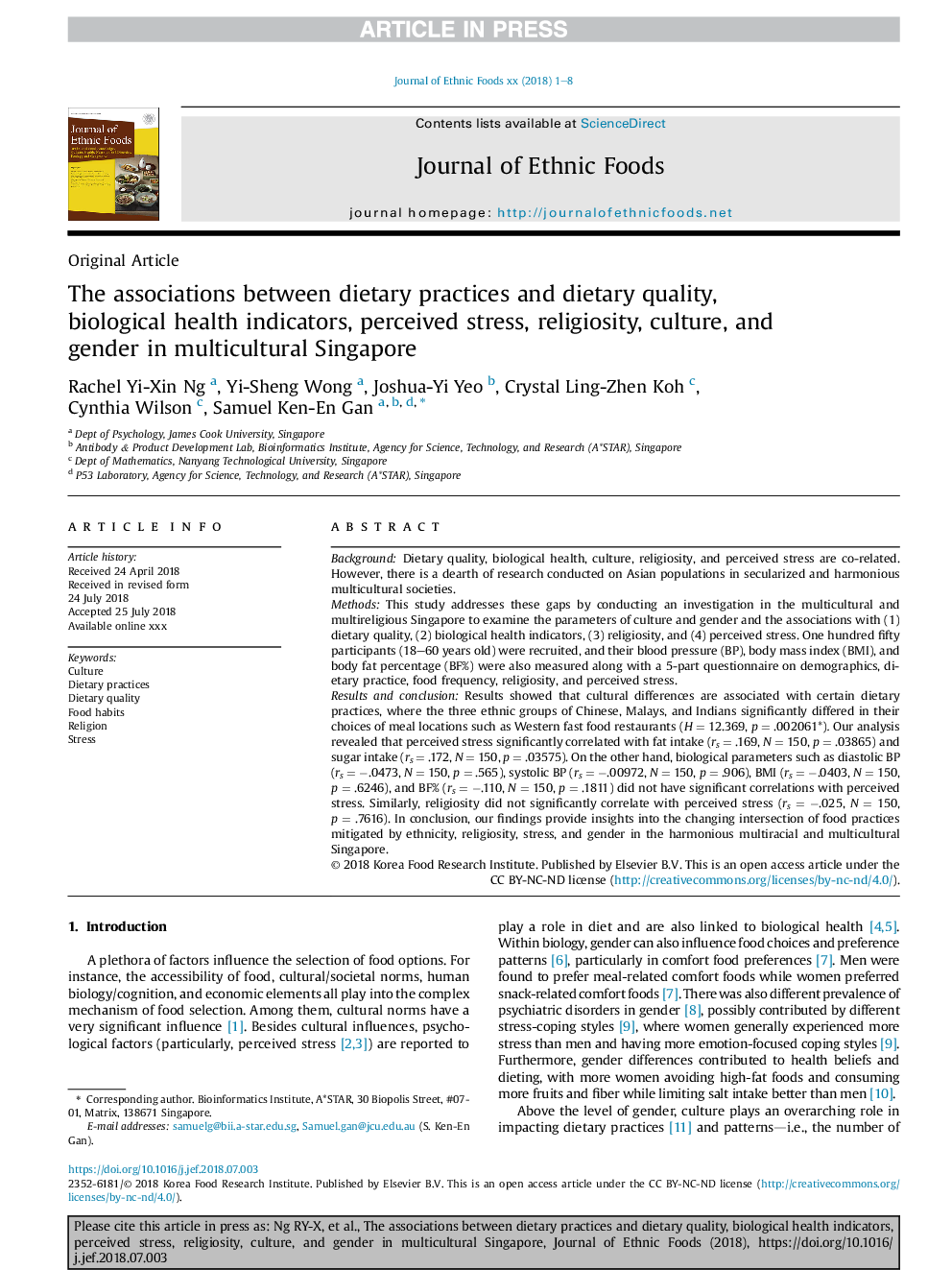| Article ID | Journal | Published Year | Pages | File Type |
|---|---|---|---|---|
| 10211431 | Journal of Ethnic Foods | 2018 | 8 Pages |
Abstract
Results showed that cultural differences are associated with certain dietary practices, where the three ethnic groups of Chinese, Malays, and Indians significantly differed in their choices of meal locations such as Western fast food restaurants (H = 12.369, p = .002061*). Our analysis revealed that perceived stress significantly correlated with fat intake (rs = .169, N = 150, p = .03865) and sugar intake (rs = .172, N = 150, p = .03575). On the other hand, biological parameters such as diastolic BP (rs = â.0473, N = 150, p = .565), systolic BP (rs = â.00972, N = 150, p = .906), BMI (rs = â.0403, N = 150, p = .6246), and BF% (rs = â.110, N = 150, p = .1811) did not have significant correlations with perceived stress. Similarly, religiosity did not significantly correlate with perceived stress (rs = â.025, N = 150, p = .7616). In conclusion, our findings provide insights into the changing intersection of food practices mitigated by ethnicity, religiosity, stress, and gender in the harmonious multiracial and multicultural Singapore.
Related Topics
Life Sciences
Agricultural and Biological Sciences
Food Science
Authors
Rachel Yi-Xin Ng, Yi-Sheng Wong, Joshua-Yi Yeo, Crystal Ling-Zhen Koh, Cynthia Wilson, Samuel Ken-En Gan,
